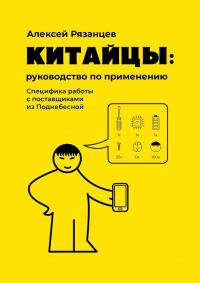Читать книгу "Нарциссический абьюз. Как распознать манипуляции, разорвать травмирующую связь и вернуть контроль над своей жизнью - Шахида Араби"
Шрифт:
Интервал:
Закладка:
Anderson, S. (2010, November, 8). Can’t let go of a bad relationship? Retrieved April 11, 2016, from https://susanandersonlcsw.wordpress.com/2010/11/08/cant-let-go-of-a-bad-relationship/.
Bergland, C. (2015, July 10). Cortisol and Oxytocin Hardwire Fear-Based Memories. Retrieved April 8, 2016, from https://www.psychologytoday.com/blog/the-athletes-way/201507/cortisol-and-oxytocin-hardwire-fear-based-memories.
Bergland, C. (2013, January 22). Cortisol: Why “The Stress Hormone” Is Public Enemy No. 1. Retrieved from https://www.psychologytoday.com/blog/the-athletes-way/201301/cortisol-why-the-stress-hormone-is-public-enemy-no-1.
Bergland, C. (2012, November 29). The Neurochemicals of Happiness. Retrieved from https://www.psychologytoday.com/blog/the-athletes-way/201211/the-neurochemicals-happiness.
Bremner, J. D., Krystal, J. H., Charney, D. S., & Southwick, S. M. (1996). Neural mechanisms in dissociative amnesia for childhood abuse: Relevance to the current controversy surrounding the “false memory syndrome.” American Journal of Psychiatry, 153 (7), 71–82.
Bremner JD (2006). Traumatic stress: effects on the brain. Dialogues in clinical neuroscience, 8 (4), 445–61.
Burke, T., Ph.D. (2008). How trauma impacts the brain. Speech presented in Rachel’s Vineyard Ministries. Retrieved from http://www.rachelsvineyard.org/Downloads/Canada%20Conference%2008/TextOfBrainPP.pdf.
Bushman, B., Bonacci, A., Dijk, M., & Baumeister, R. (2003). Narcissism, Sexual Refusal, and Aggression. Journal of Personality and Social Psychology, 84 (5), 1027–1040.
Braiker, H. B. (2004). Who’s pulling your strings?: How to break the cycle of manipulation and regain control of your life. New York: McGraw-Hill.
Brummelman, E., Thomaes, S., Nelemans, S. A., Castro, B. O., Overbeek, G., & Bushman, B. J. (2015). Origins of narcissism in children. Proceedings of the National Academy of Sciences Proc Natl Acad Sci USA, 201420870. doi:10.1073/pnas.1420870112.
Cardenas, V. A., Samuelson, K., Lenoci, M., Studholme, C., Neylan, T. C., Marmar, C. R., Schuff, N., & Weiner, M. W. (2011). Changes in brain anatomy during the course of posttraumatic stress disorder. Psychiatry research, 193 (2), 93–100. https://doi.org/10.1016/j.pscychresns.2011.01.013.
Carnell, S. (2014, May 14). Bad Boys, Bad Brains. Retrieved from https://www.psychologytoday.com/blog/bad-appetite/201205/bad-boys-bad-brains.
Carnes, P. (2013). The Betrayal Bond: Breaking Free of Exploitive Relationships. Health Communications Incorporated.
Carver, J. M. (2004). Stockholm Syndrome: The Psychological Mystery of Loving an Abuser, Page 3. Retrieved 2016, from http://counsellingresource.com/therapy/self-help/stockholm/.
Drexler, S. M., Merz, C. J., Hamacher-Dang, T. C., Tegenthoff, M., & Wolf, O. T. (2015). Effects of Cortisol on Reconsolidation of Reactivated Fear Memories. Neuropsychopharmacology, 40 (13), 3036–3043. doi:10.1038/npp.2015.160.
Eisenberger, N. I., & Lieberman, M. D. (2004). Why rejection hurts: A common neural alarm system for physical and social pain. Trends in Cognitive Sciences, 8 (7), 294–300. doi:10.1016/j.tics.2004.05.010.
Ferster, C. B., & Skinner, B. F. (1957). Schedules of reinforcement. Appleton-Century Crofts. doi:10.1037/10627-000.
Fisher, H. E. (1994). Anatomy of love: The mysteries of mating, marriage, and why we stray. New York: Fawcett Columbine.
Georgia Health Sciences University. (2011, February 28). Brain’s Reward Center Also Responds to Bad Experiences. Retrieved from https://www.sciencedaily.com/releases/2011/02/110222121913.htm.
Herman, J. L. (1992). Trauma and recovery. New York, NY: Basic Books.
Hsu, D. T., Sanford, B. J., Meyers, K. K., Love, T. M., & Hazlet, K. E. (2013). Response of the [mu]-opioid system to social rejection and acceptance. Molecular Psychiatry, 18, 1211–1217. doi:10.1038/mp.2013.96.
Halpern, H. M. (2004). How to break your addiction to a person. New York: Bantam Books.
Jacoby, M., & Kohut, H. (1990). Individuation and narcissism: The psychology of the self in Jung and Kohut. London: Routledge.
Kernberg, O. F. (1975). Treatment of narcissistic personalities. Int. J. Psychoanal., 56:245–248.
Kross, E. et al. “Social rejection shares somatosensory representations with physical pain” (2011) PNAS, 108, 5, 6270–6275.
Kalsched, D. (2013). Trauma and the soul: A psycho-spiritual approach to human development and its interruption. London: Routledge.
Klein, S. (2013). Adrenaline, Cortisol, Norepinephrine: The Three Major Stress Hormones, Explained. Retrieved from http://www.huffingtonpost.com/2013/04/19/adrenaline-cortisol-stress-hormones_n_3112800.html.
Lavender, N. J. (2014, January 10). The Narcissistic Wound. Retrieved from https://www.psychologytoday.com/blog/impossible-please/201401/the-narcissistic-wound.
Livesley WJ, Jang KL, Jackson DN, Vernon PA (December 1993). “Genetic and environmental contributions to dimensions of personality disorder.” Am J Psychiatry 150 (12): 1826–31.doi:10.1176/ajp.150.12.1826. PMID 8238637.
Louis De Canonville, Christine (2015). The Three Faces of Evil: Unmasking the Full Spectrum of Narcissistic Abuse, Black Card Books.
Marazziti, D., Akiskal, H. S., Rossi, A., & Cassano, G. B. (1999). Alteration of the platelet serotonin transporter in romantic love. Psychological Medicine Psychol. Med., 29 (3), 741–745. doi:10.1017/s0033291798007946.
McGowan, K. (2004, November 1). Addiction: Pay Attention. Retrieved from https://www.psychologytoday.com/articles/200411/addiction-pay-attention.
Mental Health Daily. (n.d.). How To Overcome Adrenaline Addiction: Tips From A Former Addict. Retrieved March 4, 2016, from http://mentalhealthdaily.com/2013/03/02/how-to-overcome-adrenaline-addiction-tips-from-a-former-addict/.
Millon, Theodore (1981). Disorders of Personality: DSM-III Axis II. New York: John Wiley & Sons.
Nutt DJ, & Malizia AL (2004). Structural and functional brain changes in posttraumatic stress disorder. The Journal of clinical psychiatry, 65 Suppl 1, 11–7. PMID: 14728092.
Pavlov, I. P. (1928). Lectures on conditioned reflexes. (Translated by W. H. Gantt) London: Allen and Unwin.
Peterson, C., & Seligman, M. E. (1983). Learned Helplessness and Victimization. Journal of Social Issues, 39 (2), 103–116. doi:10.1111/j.1540–4560.1983.tb00143.x.
Reece, G. (2013, February 25). The Trauma Bond/Abusive Relationships. Retrieved from http://garyreece.blogspot.com/2013/02/the-trauma-bondabusive-relationships.html.
Seligman, M. E., & Maier, S. F. (1967). Failure To Escape Traumatic Shock. Journal of Experimental Psychology, 74 (1), 1–9. doi:10.1037/h0024514.
Sethi, A., Gregory, S., Dell’acqua, F., Thomas, E. P., Simmons, A., Murphy, D. G., Craig, M. C. (2015). Emotional detachment in psychopathy: Involvement of dorsal default-mode connections. Cortex, 62, 11–19. doi:10.1016/j.cortex.2014.07.018.
Sleiman, S. F., Henry, J., Al-Haddad, R., El Hayek, L., Abou Haidar, E., Stringer, T., Ulja, D., Karuppagounder, S. S., Holson, E. B., Ratan, R. R., Ninan, I., & Chao, M. V. (2016). Exercise promotes the expression of brain derived neurotrophic factor (BDNF) through the action of the ketone body β-hydroxybutyrate. eLife, 5, e15092. https://doi.org/10.7554/eLife.15092.
Smithstein, S. (2010, April 19). Dopamine: Why It’s So Hard to “Just Say No” Retrieved from https://www.psychologytoday.com/blog/what-the-wild-things-are/201008/dopamine-why-its-so-hard-just-say-no.
Shin LM, Rauch SL, & Pitman RK (2006). Amygdala, medial prefrontal cortex, and hippocampal function in PTSD. Annals of the New York Academy of Sciences, 1071, 67–79.
Teicher, M. (2006). Sticks, Stones, and Hurtful Words: Relative Effects of Various Forms of Childhood Maltreatment. American Journal of Psychiatry Am J Psychiatry, 163 (6), 993. doi:10.1176/appi.ajp.163.6.993.
The National Child Traumatic Stress Network (2016). Effects of Complex Trauma. Retrieved from http://www.nctsn.org/trauma-types/complex-trauma/effects-of-complex-trauma#q4.
Van der Kolk, Bessel (2015). The body keeps the score: Brain, mind, and body in the healing of trauma. New York: Penguin Books.
Walker, P. (2013). Complex PTSD: From surviving to thriving: A guide and map for recovering from childhood trauma. Azure Coyote Publishing.
Watson, R. (2014, October 14). Oxytocin: The Love and Trust Hormone Can Be Deceptive. Retrieved from https://www.psychologytoday.com/blog/love-and-gratitude/201310/oxytocin-the-love-and-trust-hormone-can-be-deceptive.
Carnes, Patrick (2013). The Betrayal Bond: Breaking Free of Exploitive Relationships, HCI Publishing.
Curran, Linda (2009). Trauma Competency: A Clinician’s Guide. Premier Publishing.
Herman, Judith (1997), Trauma and Recovery-The Aftermath of Violence-From Domestic Violence to Political Terror, Basic Books.
Levine, Peter (2010). In an Unspoken Voice: How the Body Releases Trauma and Restores Goodness, North Atlantic Books.
Louis De Canonville, Christine (2015). The Three Faces of Evil: Unmasking the Full Spectrum of Narcissistic Abuse, Black Card Books.
Malchiodi, C. and Perry, B. (2008). Creative Interventions with Traumatized Children, The Guildford Press.
Schneider, Andrea (2015). Soul Vampires: Reclaiming Your LifeBlood After Narcissistic Abuse, Bookbaby.
Steele, William and Malchiodi, Cathy (2011). Trauma-Informed Practices with Children and Adolescents, Routeledge.
Van der Kolk, Bessel (2014), The Body Keeps the Score: Brain, Mind and Body in the Healing of Trauma, Viking Publications.
Walker, Pete (2013). Complex PTSD: From Surviving to Thriving: A Guide and Map for Recovering from Childhood Trauma, Create Space Independent Publishing Platform.
Walker, Kristin Sunata and Schneider, Andrea (2015) Podcast: everythingehr.com: Is Narcissism Psychological Viagra? https://www.mentalhealthnewsradionetwork.com/is-narcissism-psychological-viagra/.
Winnicott, D. W. (2002). On the Child, Da Capo Press.
Sachs-Ericsson, N., Verona, E., Joiner, T., & Preacher, K. (2006). Parental verbal abuse and the mediating role
Внимание!
Сайт сохраняет куки вашего браузера. Вы сможете в любой момент сделать закладку и продолжить прочтение книги «Нарциссический абьюз. Как распознать манипуляции, разорвать травмирующую связь и вернуть контроль над своей жизнью - Шахида Араби», после закрытия браузера.




